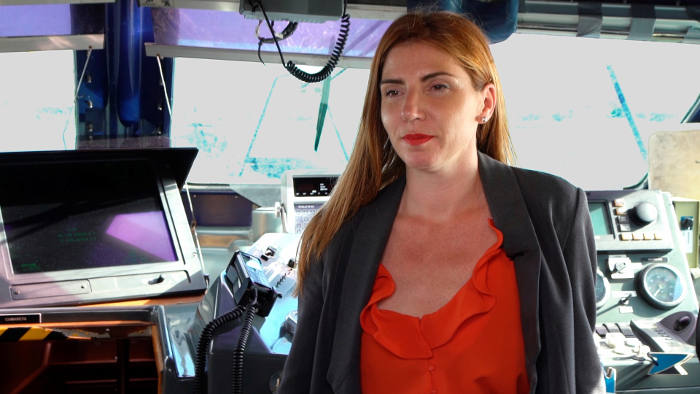-
14 June 2018
Category : Opinion
The importance of international cooperation on customs surveillance
The cross-border nature of the crimes faced by customs surveillance requires international cooperation and coordination efforts by the institutions responsible
 Laura Rebollo Villarino is the head of Air and Sea Operations and CECOP, which report to the Tax Agency’s Sub-Directorate General of Customs Surveillance
Laura Rebollo Villarino is the head of Air and Sea Operations and CECOP, which report to the Tax Agency’s Sub-Directorate General of Customs SurveillanceIn Spain, the Customs Surveillance Service is a Sub-Directorate General attached to the Tax Agency’s Customs and Excise Duties Department and belonging to the Ministry of Finance and Public Function. It is made up of officials who are considered law enforcement officers (customs and excise officers and judicial police officers) who work all over Spain and in its airspace and territorial waters. The tasks it undertakes essentially consist of curbing petty and large-scale smuggling and combatting drug trafficking and other similar crimes, money laundering, tax evasion and the informal economy. All of these have an increasingly global dimension.
In regard to international cooperation on customs surveillance, coordination and cooperation between national and European bodies and with third states are of vital importance , both in general for the public and the State and in particular for the organisations involved in this cooperation, such as the Tax Agency’s Sub-Directorate General of Customs Surveillance.
The scale of the illegal activities dealt with by us as an organisation takes various forms: firstly, because these are activities that extend beyond state borders and, secondly, because the perpetrators take advantage of the differences in legislation between the states and look for loopholes so that they can carry on their criminal activities.
In this sense, therefore, the fight against this complex type of crime faces many difficulties, although it tends to end in success. In most cases, the flow of information and the coordination between the operational resources of the different countries are what makes this success possible.
The twinning project named “Improving maritime surveillance in Turkish customs”, which is managed by FIIAPP, is currently taking place between the Spanish and Turkish customs services. The project is intended to improve the knowledge and techniques of both States so as to bring about internal improvement and implement new techniques and new operational tactics in our searches and routine work that will help us to devise and have a new vision of how we can operate against these mafias.
Laura Rebollo Villarino is the head of Air and Sea Operations and CECOP, which report to the Tax Agency’s Sub-Directorate General of Customs Surveillance
About the Project
The aim of the Improving Maritime Surveillance in Turkish Customs project, which is financed by the European Union and managed by FIIAPP in collaboration with Douanes & Droits Indirects, is to try to improve the surveillance ability of Turkey’s maritime customs service. It also seeks to ensure that the country fulfils the obligations in this area set by the European Union for Member States.
Since last November, experts from Spain’s IEF (Institute of Fiscal Studies) and AEAT (State Tax Administration Agency) have been working with their Turkish counterparts to improve the skills and procedures of the country’s customs surveillance, from illegal trade to forgery and other related offences. Spain and Turkey have similarities in this area as both countries have a long coastline and also have to cope with a strait that forms a bottleneck for shipping. Both countries also form a bridge between two continents, so that the risks and threats they face are very similar.
The views and opinions expressed in this blog are the sole responsibility of the person who write them.




